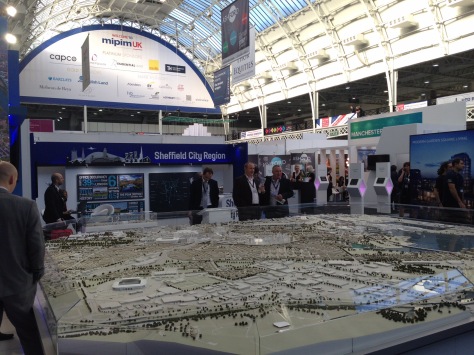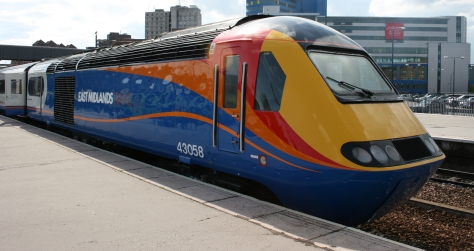Last week saw the launch of mipim UK in London. Whilst the organisers and name of the event may be consistent with the annual property pilgrimage to Cannes in the south of France, the event in London was actually very different. Initially I was very negative about it on Wednesday, but the event grew on me through the week.
I’ve talked lots on this blog about what defines mipim in Cannes and how unique it is in terms of an annual event of value to the property market. The UK event was really more of an Expo; a collection of stands which varied from Local Authorities, Developers, Investors, Law firms and the odd Consultant. It was really a show of the regions and everyone was ‘open for business’ (?). Unlike Cannes, the action/ events outside of the conference seemed very limited. I guess a large proportion of delegates were London based so would have been visiting the event, rather than basing themselves there. I also read that 80% of delegates were mipim first timers.
Getting into the conference proved a challenge on the first day as a public protest blocked the entrance to Olympia and even involved mud being thrown, literally. See the Guardian piece on it here.
The talks (well, the ones I could actually get into!) were focused on; a) the seemingly infinite expansion on London fueled of course by foreign investment, and b) The future of our regional cities. The exhibitor presence seemed to major more on the regional cities than London. One key observation was that Manchester and Liverpool shared a stand; promoting a collaborative presence, rather than competing. It seems that George Osborne’s Northern Powerhouse idea has gained much momentum and support already.
Key themes which emerged from the event were;
- Supporting devolution of power from Central Government to the Regions.
- The long term impact of overseas Investment on the UK property market.
- How to promote the regional economies, with HS2+3 being hailed as the answer to all.
Nottingham had a ‘proper’ presence at this event which was good. They had a brand new stand in a prime location – this was much better than the rather generic “D2N2” version used at mipim in Cannes.
On Friday I attended an interesting talk on Tall Buildings in the UK. On the panel was president elect of the RIBA Jane Duncan. One of her key messages at the moment is to promote the importance of having the best quality Planning officers within our UK Local Authorities.
We’ve been facing a few frustrations in recent months on new projects, as LA’s were quick to cut back their Planning Departments in the recession and now they are feeling the strain. The positive outcome of new buildings is heavily influenced by the Planning Process and to be quite honest our system is still pretty weak it seems to me, particularly with the new pre-application process. The key issue is that LA’s don’t see Planning as ‘income generating’ (?!). Rees Peter Wynne, who is a Professor of Places and City Planning, at UCL suggested that if we want to take Planning seriously in the future, they should teach more about it a Eton College as that’s where our future leaders seem to emerge from.
So was it worth it? I think so. I saw a good number of people I know, including clients who I spent time with. I also made a number of new connections which was useful and will hopefully lead to new opportunities.
Mipim of course is not about instant results – it’s all part of a rich organic web of profile raising and relationship development which, if managed properly, will lead to new work down the line.



